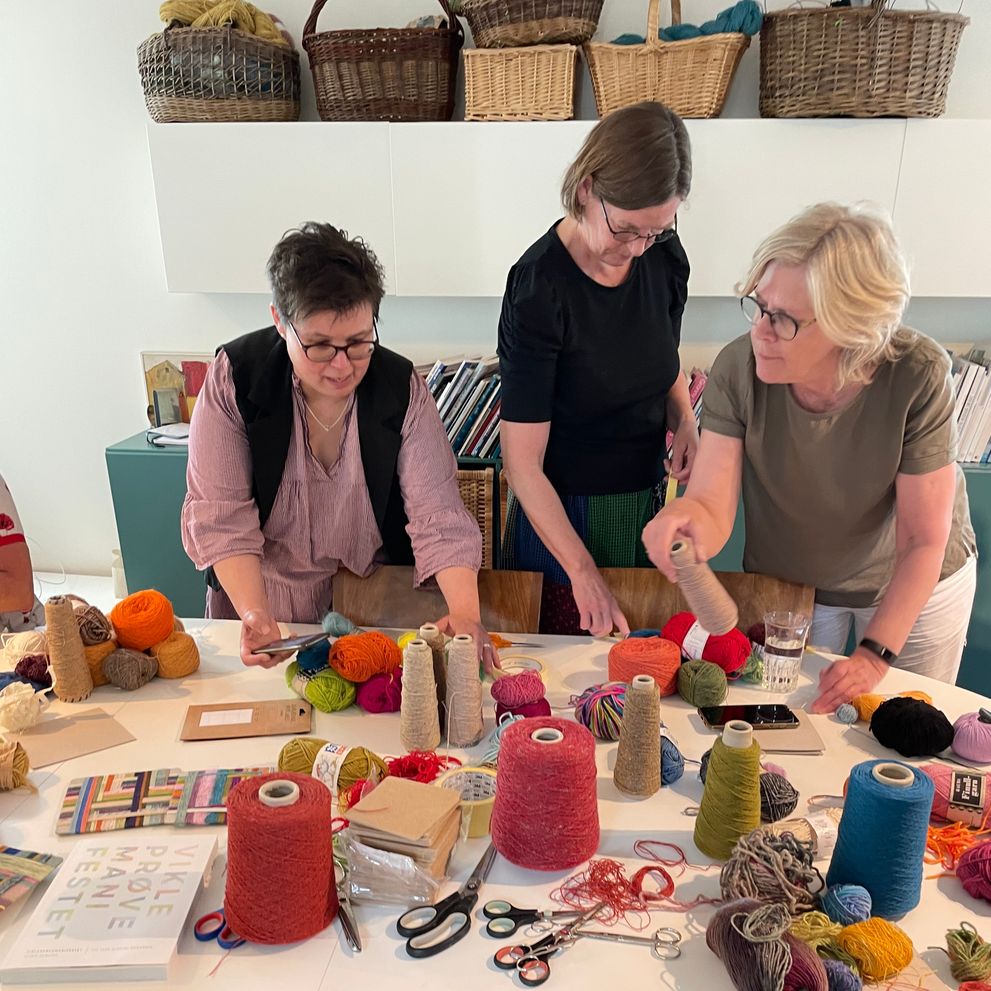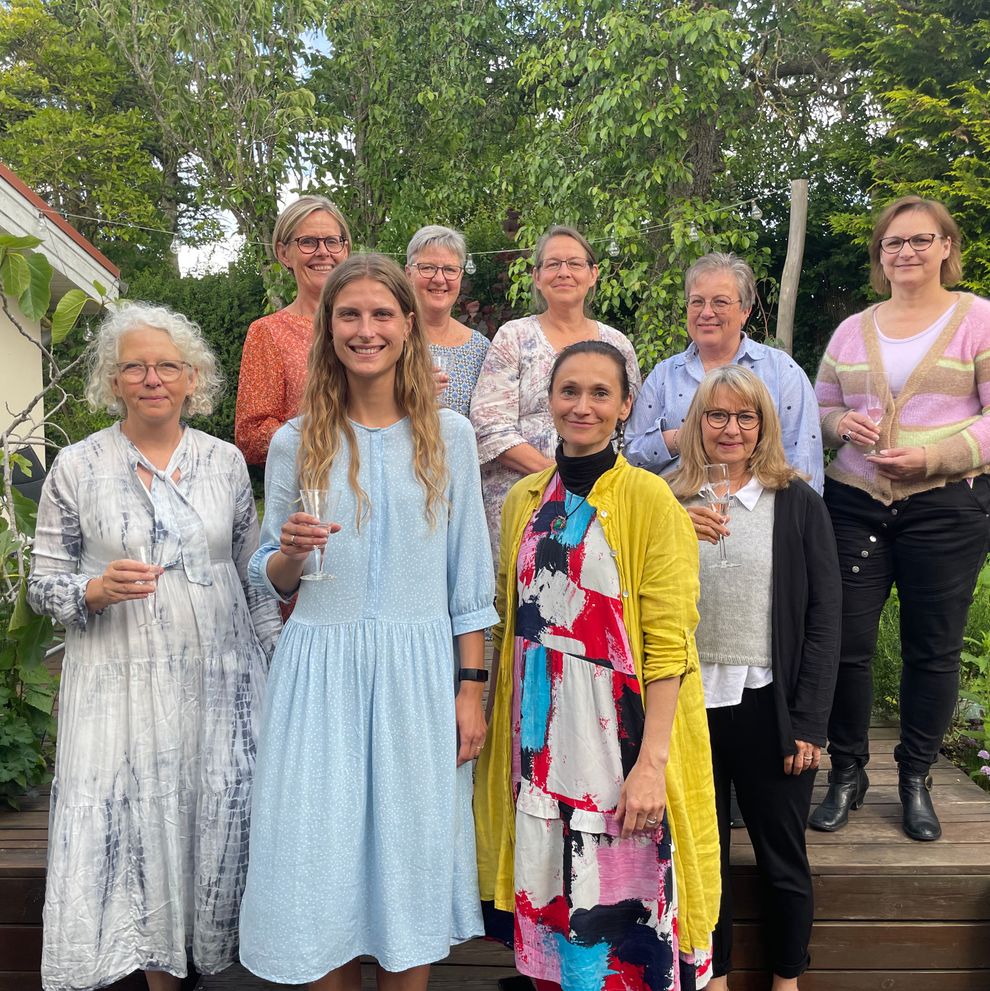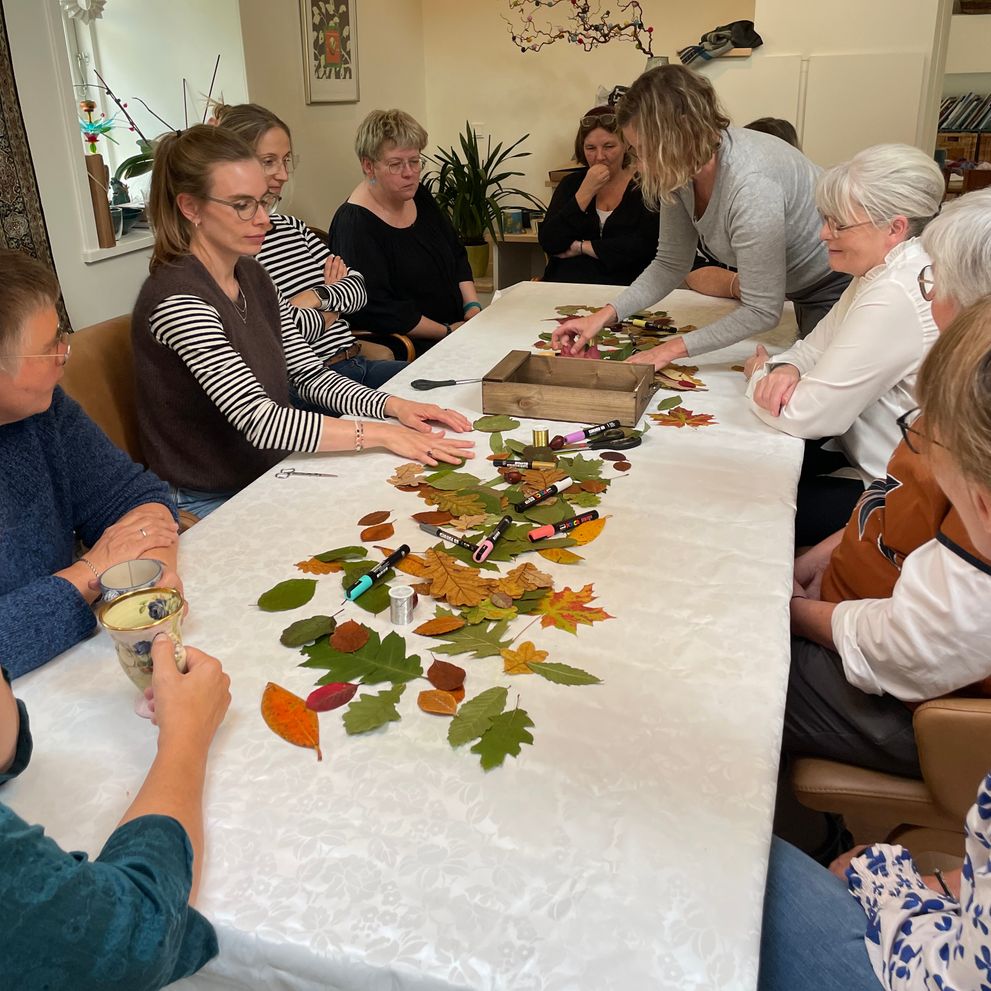UDDANNELSE
Certified education in Craft-psychology
Difficulties with getting a spot on the education? Check out our procedure for the "waiting list" below.
The education in Craft-psychology provides knowledge about research-based psychological theories behind the health-promoting effects of crafts (handicrafts and craftsmanship).
The education substantiates the general positive experience many have with crafting and opens the possibility to consciously work professionally with craft as a means of promoting health.
During the training, participants learn to develop craft activities with the right level of complexity and structure to promote well-being and reduce discomfort. Participants gain practical experience with activities that induce a state of flow and learn to use conscious attention and breathing in combination with craft.
Outcomes
After completing the education, participants can understand and argue for craft-psychology in theory and practice. They can also guide and assist others in achieving greater well-being through health-promoting craft activities.
Target Audience
Professionals who use or wish to use craft in their professional work. For example, individuals in psychiatry, the education sector, or the healthcare system who desire a scientific understanding of why and how craft promotes health. This includes enhancing well-being and alleviating various conditions and diseases such as stress, depression, anxiety, eating disorders, pain, dementia, loneliness, and ADHD.
Content
Why we engage in crafting
- Crafts - different functions throughout history
Fundamentals of craft-psychology
- Research in the field
Craft as well-being promotion - self-determination theory
- Why craft promotes psychological well-being through competence, belongingness, and autonomy
- Inner and outer motivation - the meaningful life - the importance of having a passion
System 1 & 2
- Why you can't count and talk simultaneously
- Why you can concentrate better when listening and doing simple crafts
Flow theory
- How to design flow for others
- The biochemistry of flow
Next best steps
- How craft can be used as a metaphor to promote entrepreneurship
- How to learn to translate thoughts into action
How to increase daily positivity
- Broaden and Build theory
- Why craft engenders hope, joy, and optimism
Craft as a promoter of calm and relaxation
- Introduction to the autonomic nervous system
- How the parasympathetic nervous system is activated through craft
- The difference between flow and mindfulness
- Knowledge of the Default Mode Network and how it can be controlled as attention through craft
Craft as a prerequisite for experiencing meaningful achievements
- Small micro-successes as prerequisites for perceived performance
- Creating tracks
Craft and cognitive performance
- Craft as a promoter of neuroplasticity
- Craft as a promoter of complex problem-solving skills
The health-promoting effects of craft on
- Stress
- Depression
- Anxiety
- Eating disorders
- Pain
- Dementia
- Loneliness
- ADHD
As well as concrete exercises that promote well-being, such as
- Over-the-Top Flow
- Flow
- Calm
Special emphasis is placed on participants' ability to design courses tailored to their own passion and expertise.
The course does NOT teach craft techniques but how to apply craft psychology for health promotion. However, there are many practical craft exercises to personally experience craft and its various health-promoting effects.
Therefore, it is a prerequisite that participants master a craft technique that can be used during the training (in addition to textile techniques, you can, for example, carve or draw). All participants must guide their own developed activity during the course to learn how craft activities can have different effects depending on the level of structure the activity has.
Duration
The program spans 6 days, each consisting of 7 hours, with theoretical and practical assignments between each session.
Participants should expect to spend approximately 4-8 hours per week between classes on training, exercises, and reading.
Prices for 2024
Rønde: DKK 11,400
Sorø: DKK 11,900
Intensive course with accommodation: DKK 20,000
Prices for 2025
Rønde: DKK 11,950
Sorø: DKK 12,000
The price includes meals and the books "Craft-Psychology - Health-Promoting Effects of Handicrafts and Crafts" by Anne Kirketerp and "Health and Well-Being through Craft Activities" (ed.) by Elise Bromann Bukhave and Anne Kirketerp, as well as all materials for exercises.
The education is postgraduate and therefore not subject to VAT.
After registration, you can cancel free of charge until 5 weeks before the start. After that, the full amount is payable, even if you have not yet paid.
Sign up here
New procedure for the "waiting list" for the education
The Craft Psychology education is sold out (except from the intensive course) and has a long waiting list. However, it has proven to be very difficult to manage the waiting list when there are cancellations. Often, cancellations occur very late due to people falling ill, and I need to quickly find a replacement. It's challenging to individually notify people on the waiting list because it's too slow and cumbersome to wait for someone who can step in at short notice. Therefore, from now on, available slots due to cancellations will be announced to those who receive my newsletter in a special extraordinary newsletter. Sign up for the newsletter, and thus the waiting list, at the bottom of the page.



